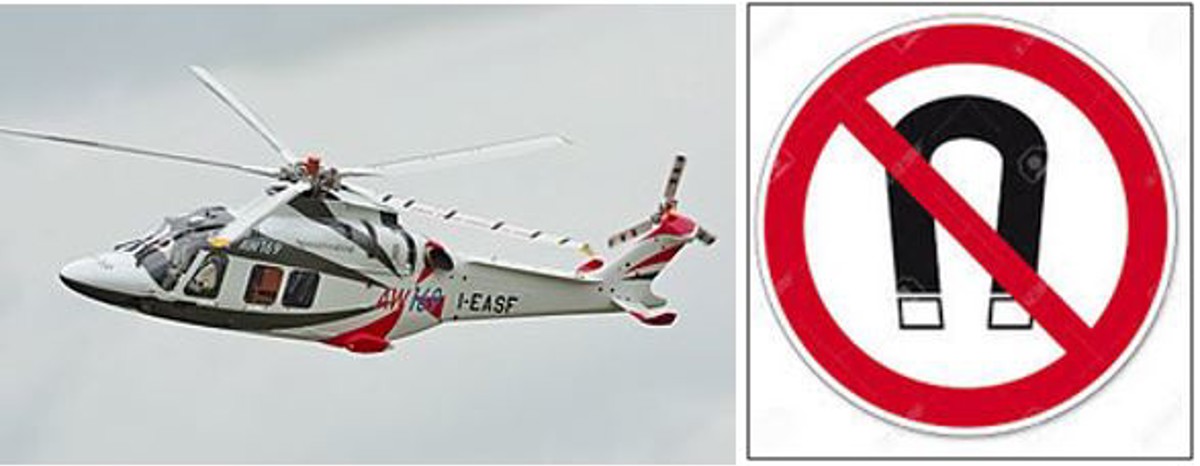Helicopter navigation experienced magnetic interference
- Safety Flash
- Published on 14 June 2018
- Generated on 14 February 2026
- IMCA SF 12/18
- 2 minute read
Jump to:
On a normal (passenger) crew change flight in an AW169 helicopter, crew noticed a “1-2 AHRS FAIL” caution displayed in the crew alert system shortly after departure from the offshore installation.
What happened?
With this caution message, electronic helicopter heading information was completely lost.

What went wrong? What were the causes?
After disembarking, the passengers were asked if they had any ferrous or magnetic parts in their luggage, which was initially denied. After becoming aware of certain products possibly containing magnets, one of the passengers realised and admitted that he had two medium size stereo speakers in his luggage.
The cause of the instrument failure was found to be due to the presence of magnetic elements (speakers) in the luggage hold.
In bad weather conditions, navigation errors due to loss of orientation could have resulted in a far more serious outcome.
What actions were taken?
- The helicopter equipment involved in the occurrence was checked for damages and for correct function. No damage nor discrepancies were found; the helicopter was released for service.
- Check-in personnel now inform passengers that stereo speakers are not permitted on board helicopters.
- Check-in personnel make random checks of passengers’ luggage (as approved by customer/passenger) for items not to be transported onboard helicopters.
What lessons were learned?
- There is poor awareness amongst helicopter passengers as to what could constitute hazardous goods; information on such potentially hazardous items needs to be made more readily available.
- Offshore facilities (helicopter departure lounges) are not displaying adequate lists or images of items which are not permitted on board helicopters; this needs to be addressed and rectified.
IMCA Safety Flashes summarise key safety matters and incidents, allowing lessons to be more easily learnt for the benefit of the entire offshore industry.
The effectiveness of the IMCA Safety Flash system depends on the industry sharing information and so avoiding repeat incidents. Incidents are classified according to IOGP's Life Saving Rules.
All information is anonymised or sanitised, as appropriate, and warnings for graphic content included where possible.
IMCA makes every effort to ensure both the accuracy and reliability of the information shared, but is not be liable for any guidance and/or recommendation and/or statement herein contained.
The information contained in this document does not fulfil or replace any individual's or Member's legal, regulatory or other duties or obligations in respect of their operations. Individuals and Members remain solely responsible for the safe, lawful and proper conduct of their operations.
Share your safety incidents with IMCA online. Sign-up to receive Safety Flashes straight to your email.